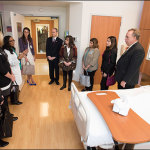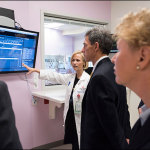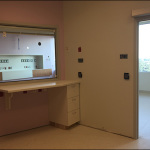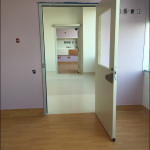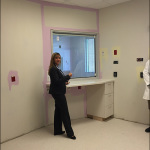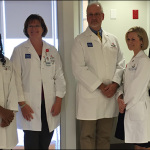 In light of the multiple confirmed cases of recent travelers who returned to the Houston area after contracting Zika in Central America, Texas Children’s leaders encourage employees and staff to arm themselves with facts about Zika virus.
In light of the multiple confirmed cases of recent travelers who returned to the Houston area after contracting Zika in Central America, Texas Children’s leaders encourage employees and staff to arm themselves with facts about Zika virus.
The virus, which has spread rapidly through Central and South America in the last year, is transmitted between humans primarily through mosquito bites. People may not realize they’ve been infected with Zika virus because the majority of people will develop an asymptomatic or mild flu-like infection.
The Zika virus has heightened concern among pregnant women since the virus may increase the risk of microcephaly, a rare neurological birth defect in which babies are born with abnormally small heads.
While there is no vaccine to protect against Zika infection, Dr. Kristy Murray encourages employees, particularly pregnant women, to refrain from travelling to areas where the outbreak is growing. The only way to prevent infection is to avoid getting mosquito bites.
“The only risk factor right now is foreign travel to areas where the virus is epidemic,” said Murray, director of the Laboratory for Viral and Zoonotic Diseases at Texas Children’s. “Currently, we do not have mosquitos locally that can transmit the virus, though we are concerned that an infected traveler could expose our mosquitos, setting up an opportunity for local transmission to begin. For about a week, an infected person has enough virus circulating in his or her blood to infect mosquitos.”
Texas Children’s OB/GYN-in-Chief Dr. Michael Belfort recently convened a task force of physicians and researchers at Texas Children’s and Baylor College of Medicine to develop management and research strategies based on important screening criteria outlined by the Centers for Disease Control (CDC) for pregnant women who may have been exposed to the Zika virus.
Belfort stresses that “women who have traveled to an affected area just before or during their pregnancy should contact their OB-GYN.” As stated in the developed task force guidelines, if pregnant women return from an endemic area and within two weeks develop symptoms, they will be referred to a knowledgeable provider or maternal fetal medicine specialist to test for evidence of Zika virus exposure. Additionally, pregnant women who return from an endemic area, regardless of symptoms, will be referred for ultrasound screening for fetal microcephaly. If fetal microcephaly is detected, an amniocentesis for Zika virus exposure will be offered.
“Our expert group also has recommended testing for chromosomal disorders at the time of amniocentesis for fetal microcephaly,” said Dr. Kjersti Aagaard, vice chair for Research in the Department of Obstetrics and Gynecology at Texas Children’s and Baylor, and a member of the task force. “Since the same mosquito carries Dengue, Chikungunya and Zika, we are advocating for testing of all three viruses once laboratory options become available.”
Below are FAQs about the Zika virus from the CDC and the developed guidelines:
What are the symptoms of Zika?
The most common symptoms of Zika virus disease are fever, rash, joint pain or conjunctivitis (red eyes). Symptoms typically begin two to seven days after being bitten by an infected mosquito.
How is Zika transmitted?
Zika is primarily transmitted through the bite of infected Aedes mosquitos. It can also be transmitted from a pregnant mother to her baby during pregnancy or around the time of birth. We do not know how often Zika is transmitted from mother to baby during pregnancy or around the time of birth, when women are at highest risk, or how the transmission occurs.
Who is at risk of being infected?
Anyone who is living in or traveling to an area where Zika virus is found is at risk for infection, including pregnant women.
What countries have Zika?
Specific areas where Zika virus transmission is ongoing are often difficult to determine and are likely to change over time. Click here for the most updated information.
For more information about the Zika virus and ways you can protect yourself, click here.










